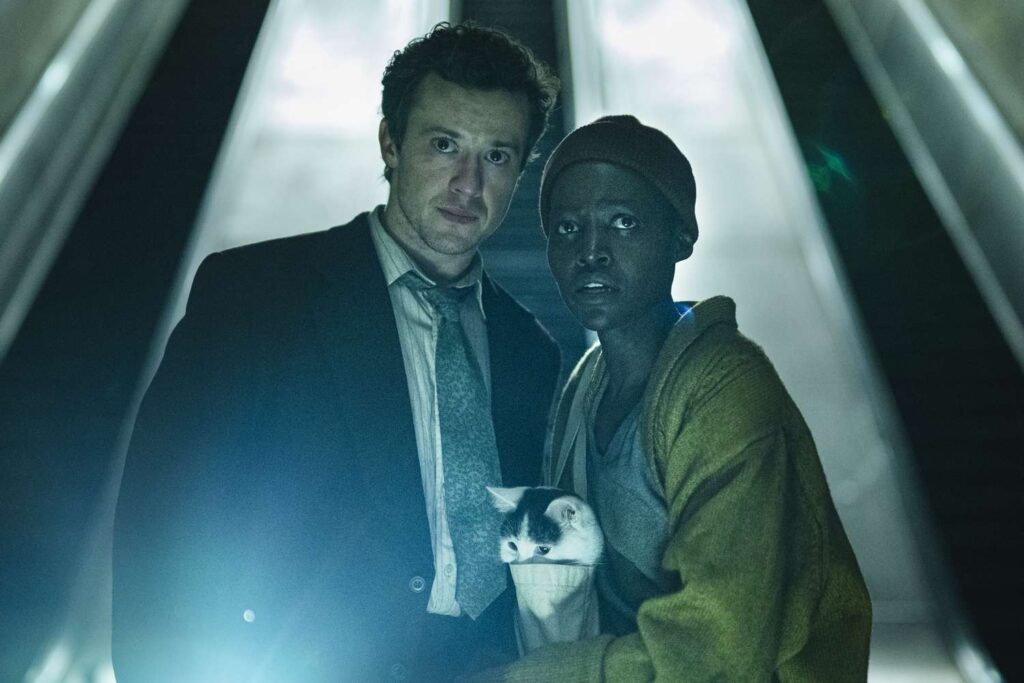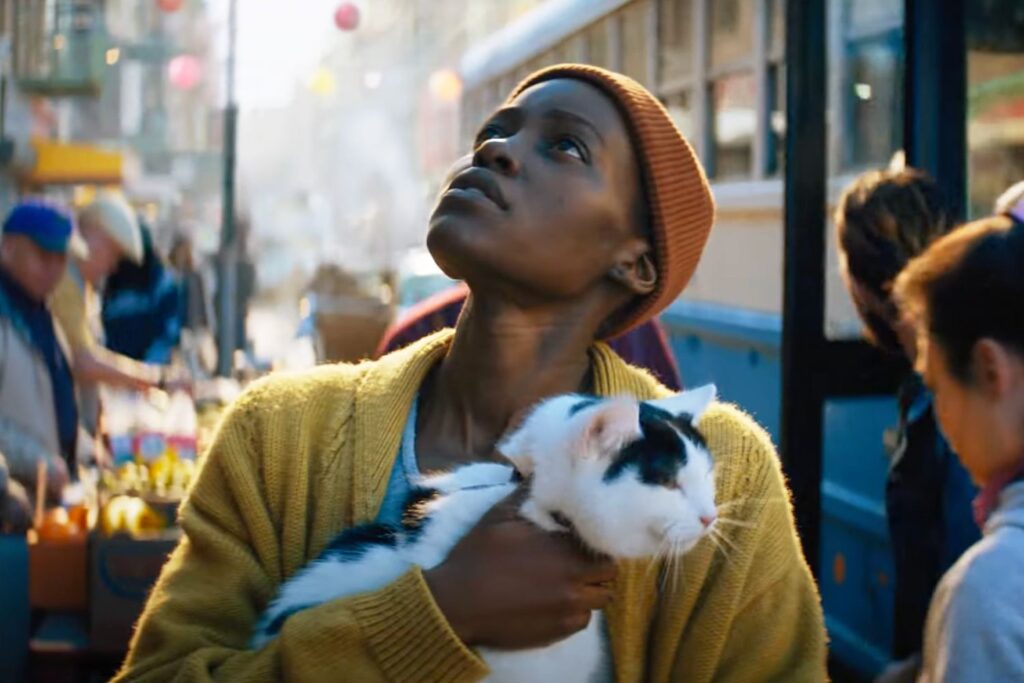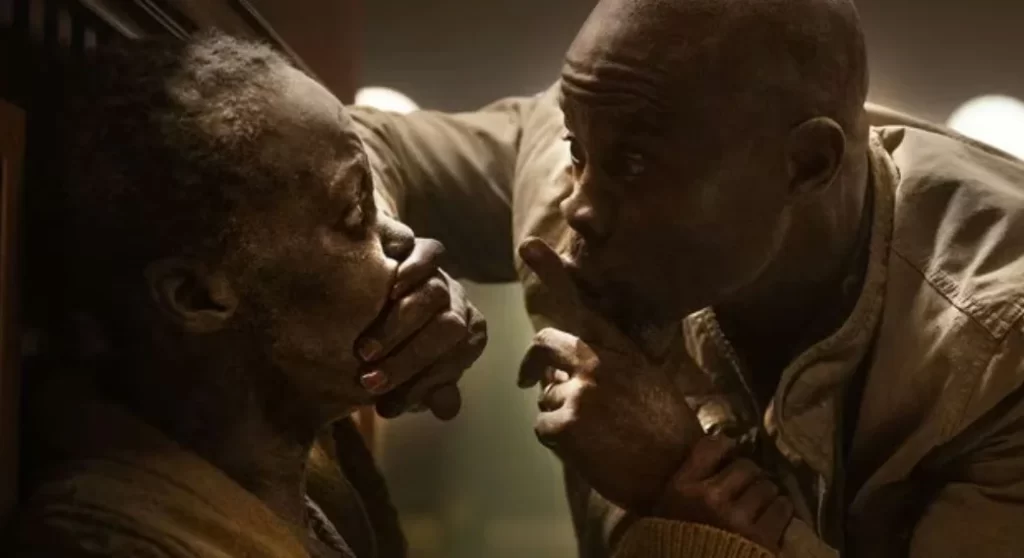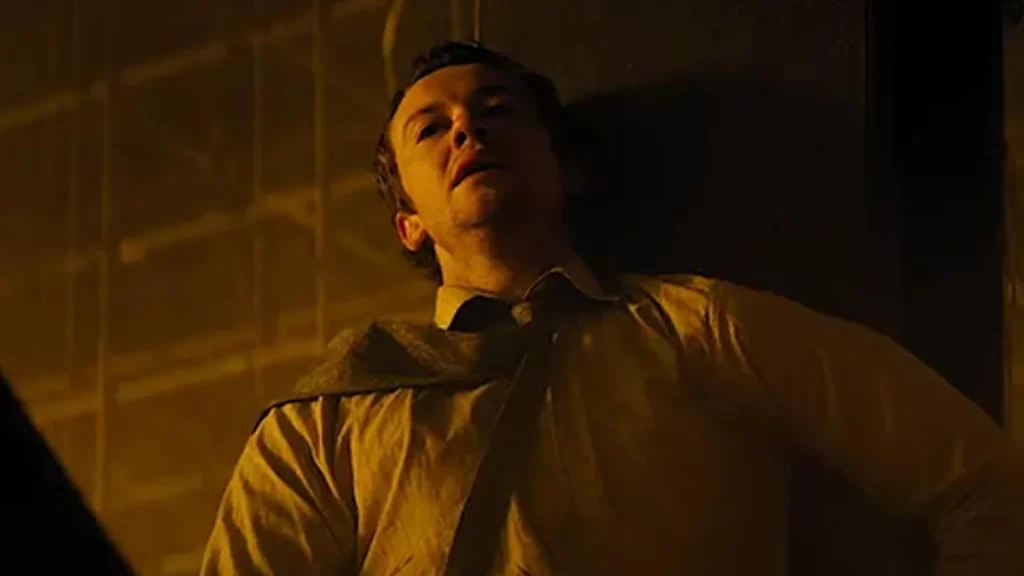
The special thing about the first Quiet Place movie was that it didn’t do anything special. Sure, John Krasinski’s horror hit was cinematically imaginative, but it worked because it stayed small, applying its merciless technique to the fate of one family enduring the crucible of a sonically fraught apocalypse. In retrospect, it’s somewhat miraculous that A Quiet Place Part II fared as well as it did, given that its mild expansion (new people, new locations) inevitably diluted some of its tension. This nascent franchise will continue churning out additional installments so long as they keep making money, but the commercial imperatives of sequel-building—bigger thrills, grander mythology, general moreness—seem incompatible with the original’s white-knuckle intimacy.
A Quiet Place: Day One, from the writer-director Michael Sarnoski (Krasinski receives a story credit), seems to succumb to this contradiction before improbably evading it. In terms of pure suspense, it is the least successful Quiet Place picture thus far. It is also the most humane.

If the title of this prequel seems a little fishy, that’s because we already witnessed “Day One” in Part II, which began with the arrival of its visually impaired, aurally gifted monsters before flashing forward for a proper sequel. Sarnoski contemplates the same point of origin from a different arena, transplanting the action from rural upstate New York to chaotic Manhattan—the playful opening title card informs us that the Big Apple emits 90 decibels on average, “the sound of a constant scream”—but he essentially repackages Part II’s cold open into its own feature, with new characters doing the same old rushing and shushing.
Our heroine is Sam (Lupita Nyong’o), a terminal cancer patient armed with a skull cap, a no-nonsense attitude, and a tuxedo cat that conveniently refuses to meow. Sarnoski does efficient work establishing Sam’s gives-no-fucks persona—she’s accompanied by Reuben (Alex Wolff, who starring alongside Nicolas Cage in Sarnoski’s Pig), a nurse who’s half-understanding friend, half-exasperated guardian—but he recognizes his obligation to supply spectacle, and it doesn’t take long before the city’s crowded streets become carnivals of mayhem.

When it comes to terror, Day One is a modest disappointment. Sarnoski’s staging is skillful enough—the helicopter shot of the military methodically detonating various bridges, a maneuver designed to keep the land-dwelling creatures contained, is appropriately grave—but he operates with competency rather than ingenuity. The movie’s hectic set pieces—deactivating a noisy generator, wriggling under a deflating car, getting stuck in a revolving door—are about what you’d expect from a Quiet Place flick, delivering moderate excitement but lacking the specific horror of (for example) Emily Blunt smothering an anguished cry after planting her foot on a nail. There is also the problem of scale: There are dozens of monsters and countless anonymous victims, and after awhile the constant death grows enervating. Here, from a thriller perspective, more is decidedly less.
And then, surprisingly, some English dude shows up and changes everything. His name is Eric (Joseph Quinn), and he is in every way the opposite of your traditional action hero: tentative, bookish, cowardly. He’s hardly the type of guy whom the rugged Sam should be paired with, and yet—thanks to the wanderings of that blasted cat—the two end up forming a strange, unspoken (duh) alliance. From here, Day One transitions from a brawny action movie into something far stranger and more intriguing. It meditates, with striking sincerity, on the very nature of humanity: the value of being alive, the need to connect with others, the importance of persevering when all seems lost.

The relationship between Sam and Eric doesn’t strictly qualify as a romance, but Day One nonetheless follows the contours of a love story, watching as its heroes develop a bond that proves both tender and ironclad. Nyong’o is a performer of considerable charisma, which makes her a fascinating scene partner with Quinn, who imbues Eric with a plaintive quality that scans less as weakness than aching need. There’s a beautiful scene where Sam, anticipating the roar of thunder, unleashes a primal scream; seconds later she does it again, and this time Eric joins in, creating a powerful sense of cathartic unity. Later, their simple trip to an abandoned jazz club—celebrated with a shared meal of crummy pizza—functions as a delightful oasis of momentary contentment.
These are the lasting images of A Quiet Place: Day One, which is otherwise sturdy but unexceptional. As a purveyor of apocalyptic nightmares, it’s familiar. But in affording its characters uncommon dimension, this hushed, stricken movie has something to say.
Grade: B
Jeremy Beck is the editor-in-chief of MovieManifesto. He watches more movies and television than he probably should.
